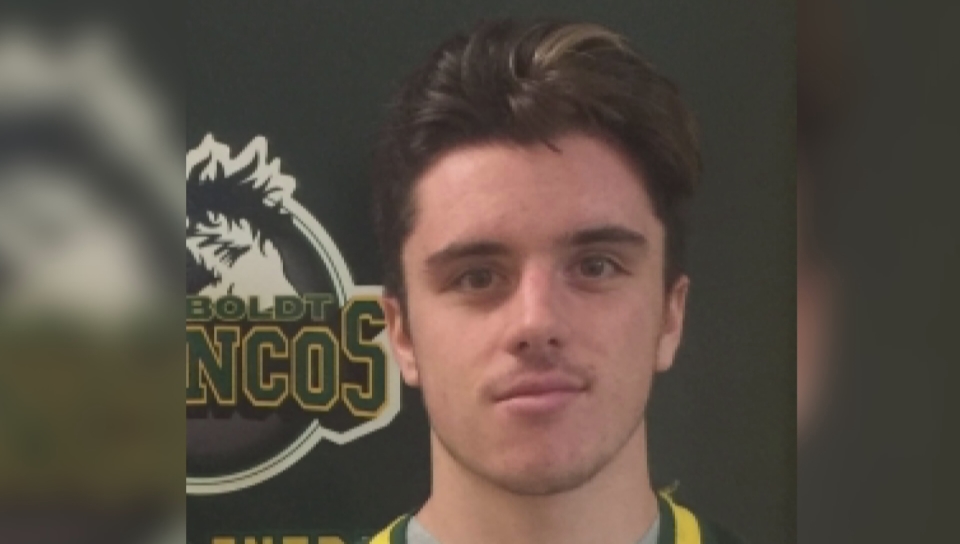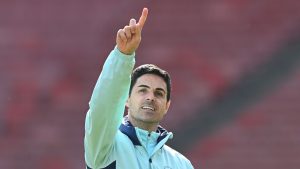Politics awaits for paralyzed Olympic hero

Follow @cnnsport
This year she returned in a wheelchair.Vogel sustained life threatening injuries in a horrific training accident in Cottbus last June, colliding with a stationary cyclist at over 60kph.She survived, but the impact of the crash severed her spinal cord, leaving her permanently paralyzed.It was a shattering conclusion to the 28-year-old’s sporting career, at the peak of her powers and with the promise of many more gold medals in her specialist event of track sprinting.It would have been easy for Vogel to have hidden from public view while coming to terms with her dramatically changed circumstances.But Vogel has done just the opposite, using her social media feed to update fans on her rehabilitation and attending a series of high profile events. The German public voted her second behind tennis star Angelique Kerber in their televised annual sports awards and she made an emotional return to the Berlin velodrome for a World Cup event in December, receiving a rapturous reception.That popularity may well stand Vogel in good stead for a new career that beckons in politics.Vogel, who was a part-time police officer as well as a professional athlete before her accident, is standing for election in May in her home city of Erfurt as a candidate for German chancellor Angela Merkel’s Christian Democrat Party.Placed second on the CDU’s local list, Vogel is almost certain to be elected for a five-year term to the 50-strong city council.”I want to give something back, because I love my home town,” she told CNN Sport.And future ambitions, aiming to reach the top in politics as she has done in sport?”Maybe yes, maybe no. I don’t know, give me five years in Erfurt and we will see if I like it,” she said.Vogel’s former German teammate Maximilian Levy, like herself a sprint cyclist with a glut of gold medals at the highest levels, is supportive of her new career choice.”It’s something she wanted to do so fine by me,” he told CNN.”Every one of her friends has tried to do something for her, she has a bucket list of things to do, but at this point it is important to recognize she is not a track queen, she is a friend,” he added. Embraced by what she calls the “family of track cycling,” Vogel exudes positivity as she whizzes around the infield of the Berlin track where the competitors and officials are gathered, cheerily greeting all and sundry.Vogel acted as the ceremonial starter for the annual Six Day event, flanked by fellow Germany cycling stars Roger Kluge and Theo Reinhardt, but very much the center of attentionReturning on the final day to hand out prizes to young competitors hoping to emulate her achievements, Vogel said she was determined to make the best of her situation.”It’s important to come back here to show that it will be fine, that when you believe in yourself although the situation could be better, you go on,” she said.’Sometimes I cry for five minutes’However, Vogel admitted that adapting to life in a wheelchair and the realization that she would never walk again was often hard to take.”Of course, sometimes it’s very difficult and I have bad moments when I cry for five minutes, but at the end of the day I’m still smiling, I’m still Kristina and I think it’s an important story I can tell.”Vogel told the media in September when she confirmed the extent of her life-changing injuries, that the immediate aftermath of the accident were the “hardest weeks of her life” and publicly thanked her long-time partner, Michael Seidenbecher, for his support.Seidenbecher, who has represented Germany on the track at world championship level, and Vogel, have been together since 2009, the year she had another dice with death, colliding with a minibus near her home in Erfurt and being placed in an induced coma for two days.She recovered to claim the first of her Olympic gold medals in the team sprint competition at the 2012 London Olympics, the springboard for more team and individual success at global level.The 2016 Olympic gold medal in the sprint competition, beating Britain’s Becky James in the final, was the highlight of her career, which also boasted no less than 11 world championship titles in team sprint, individual sprint and the keirin. Her exploits earned the social media tag of #queenbee and more success looked sure to follow until the cruel twist of fate last June left her fighting for her life and then coming to terms with her devastating injuries.Adapting to new lifeOther than her bid to get elected, Vogel has yet to make definitive plans for the future, foregoing for now any serious attempts to get involved in disability sport, despite her obvious athletic ability and pedigree.”It’s still too early I believe,” she said.”I think I need two to four years to get to know what it means to be paralyzed. For the moment I’ve a lot of nice things to do like coming here and working on our national television coverage of track cycling.”But an involvement in politics, admittedly at local level in her beloved Erfurt, is definitely on her bucket list and she pledges to take her responsibilities seriously, using her experiences old and new.”As an athlete, I want to introduce better things for sport, as a police officer it would be nice to make the city a little safer and as a wheelchair user you see things in a different way in terms of issues like accessibility,” she said.She will be a high-profile representative of a city of over 210,000 residents, with an historic medieval center and a famous university dating back to 1349.The founder of the Protestant Reformation, Martin Luther, was a student at the university in the early years of the 16th century. Erfurt was part of the German Democratic Republic until German reunification in 1990, the year Vogel was born.Brexit ‘stupid’Outside of hometown issues, Vogel admits to being perplexed by what is happening on the wider political scene.She bluntly describes Brexit as “stupid” — adding “it’s better to be in a family than to work alone.”Vogel warms to her theme: “The world is really hectic at the moment with a lot of things happening in a short time.”I wish people would take a moment to breath and realize what is important.”Unsurprisingly memories of her accident are still raw for both her and close friends.Levy was at the Cottbus velodrome when it happened and was one of the first on the scene as she lay stricken on the track.”Experiencing it as a friend is more excruciating than any pain of your own,” he tweeted.In the immediate aftermath, Levy set up a crowdfunding page #standbykristina# which had an initial target of 50,000 euros ($57,000), but eventually raised over 120,000 ($136,000), with a number of leading sports stars rallying round to boost the fund.Levy and fellow German team members Kluge and Reinhardt marked Vogel’s appearance with crowd pleasing victories as the Berlin Six Day event reached its conclusion.Levy won the sprint competition for the eighth time while Kluge and Reinhardt made a dramatic late charge in the final madison event to wrap up the overall honors.Berlin was the second stop, after London, on the seven-venue series promoted by the Madison Sports Group, with the aim of promoting indoor cycle racing to a worldwide audience for television and local spectators.Visit CNN/com/Sport for more news, features and videosThe German capital has hosted the event since 1909, with over 100 editions being staged in an illustrious history which has seen many of the most famous names in cycling take the Six Day crown and others, such as Vogel, provide an enticing support program.Kluge summed up the feelings of everyone after his victory. “It was great to see Kristina here,” he said. “We will support her in any way we can in the future.”




